2023: The Institute for Government’s Year in Review
2023 was another busy year for the IfG.
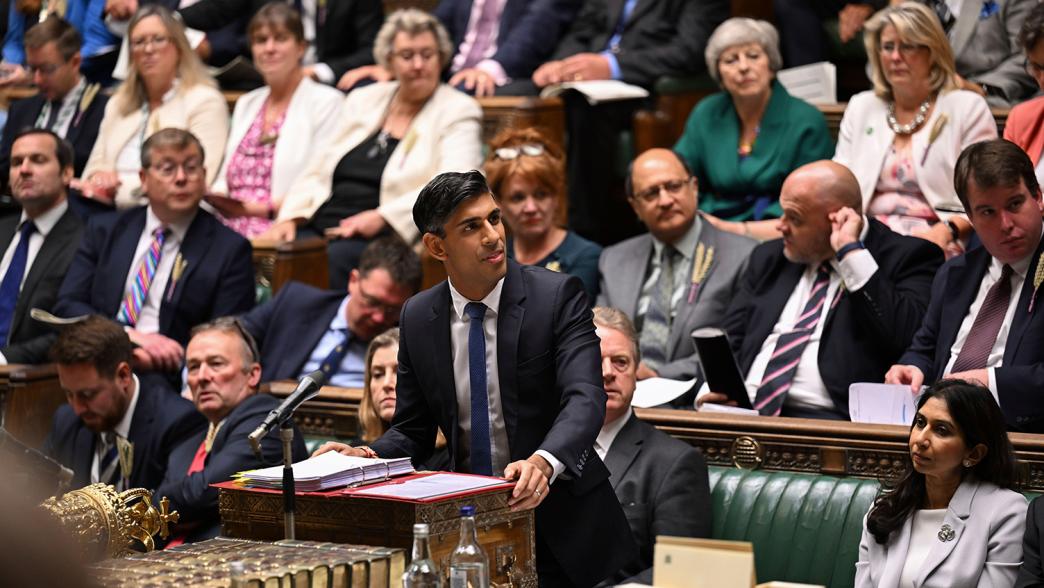
It has been another packed year for the Institute for Government, with 65 publications, 70 events, 152 comment pieces, 62 explainers and 78 podcasts. Dr Hannah White looks back on some of IfG’s highlights
Rishi Sunak began the year by setting out five pledges. Keir Starmer followed suit with five missions. While the prime minister’s aim was clear – to show he could be trusted on the economy, unlike Liz Truss, and trusted to deliver, unlike Boris Johnson – Sunak set himself a deliberately low bar. For the Labour leader the purpose was to show how Labour would govern, were it to win the general election – the vision, however, was lacking in details. Here at the IfG, we kicked off the year with our inaugural Government 2023 conference – a day of panel discussions, debate and keynote speeches exploring what government does well, and what it needs to do better.
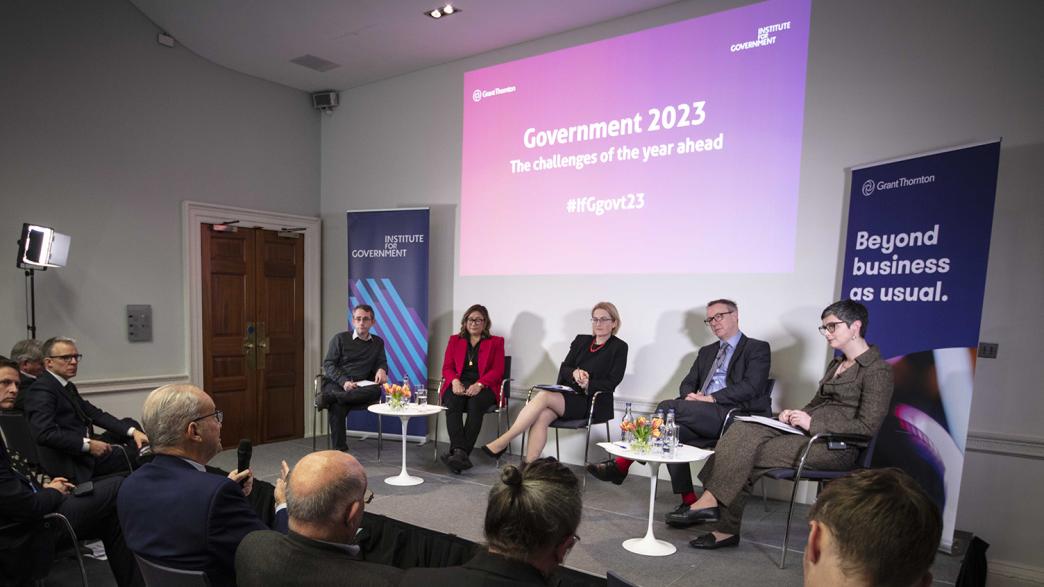
At the end of January we published Whitehall Monitor, our annual data driven report into the size, shape and performance of the civil service. Revealing high rates of staff turnover, and falling levels of morale, the report warned the ministerial involvement of the partygate scandal had “harmed perceptions of civil service impartiality.”
The performance of public services will dominate debate in the year ahead, and in February our Performance Tracker update – published with CIPFA – warned that services would not return to pre-pandemic performance levels by the next election, which in most cases was already worse than when the Conservatives came to power in 2010.

In March the chancellor set out his budget. The IfG set out the six key things we had learnt from Jeremy Hunt’s statement – and noted that little had been said about support for public services. Our event the following day, with OBR chair Richard Hughes, explored what the budget had revealed about the government’s fiscal policy.
The Treasury was also the focus of a major IfG report in April, when we examined the role it played during the Covid pandemic. We warned that the department had been at the heart of a damaging tug-of-war in government – a point put to Rishi Sunak, chancellor for the period covered in the report, during his recent appearance before the Covid inquiry.

April also saw the IfG’s first report into chronic policy problems, with our new publication revealing how every government since 1992 has missed targets to reduce obesity – and arguing that government squeamishness on tackling obesity will mean higher taxes and lower productivity.
Civil service impartiality was in the spotlight in May. The IfG argued that politicisation of the civil service is a solution that risks neither fixing its problems nor delivering its supposed advantages – but our new paper made clear that while impartiality is of most value to UK government, there is no legitimacy for an impartial civil service other than its effectiveness.
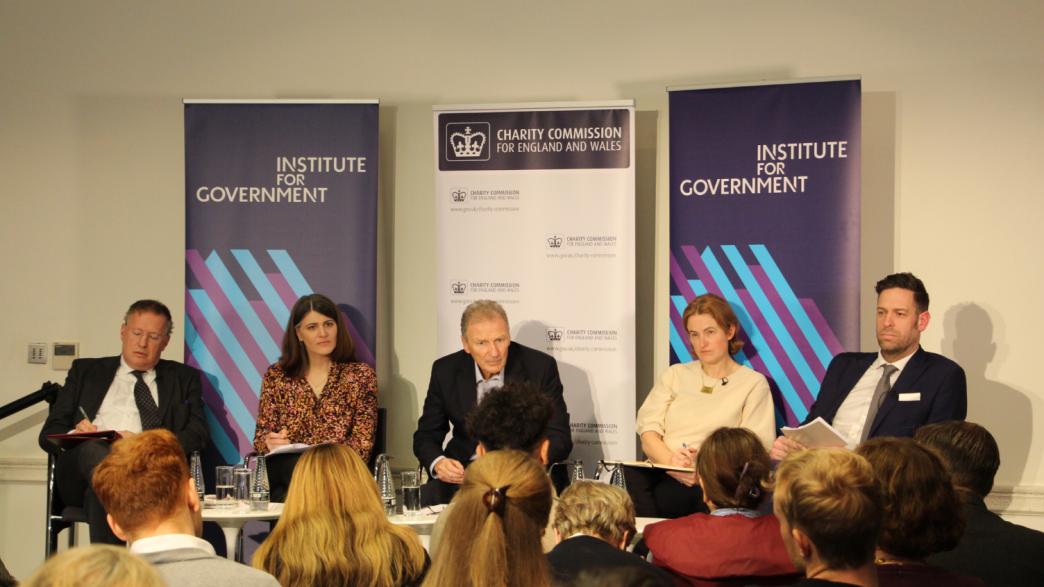
Why has hospital activity not increased in line with funding and staffing? That that was the question tackled and answered by our June report into the NHS’ productivity puzzle – which became our most-downloaded of 2023 – co-authored by IfG senior fellow Sam Freedman and Public First’s Rachel Wolf.
July marked the 10th anniversary of the passing of same sex marriage legislation, which we argued was a masterclass in consensus-building and policy making. The IfG held a policy union of key officials, ministers, LGBT+ rights campaigners and representatives from religious organisation, and later in the year we published our report into the lessons learnt from the policy’s success – and how governments could learn from them.
The NHS productivity puzzle: Why has hospital activity not increased in line with funding and staffing?
The NHS crisis will only be solved with capital investment, increasing management capacity and staff retention – not just more doctors and nurses.
Download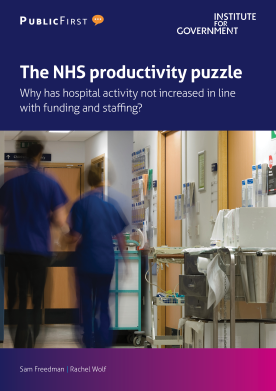
In September we published the final report of our 18-month long Review of the UK Constitution, which we conducted with Cambridge University’s Bennett Institute for Public Policy. The review warned that a tumultuous period in UK politics has damaged trust in UK politics, its political institutions, and its international reputation as a stable democracy – and set out a series robust recommendations designed to re-assert the UK’s fundamental constitutional principles, establish them as a stable basis for the operation of government and reassure the public that they will be enforced.
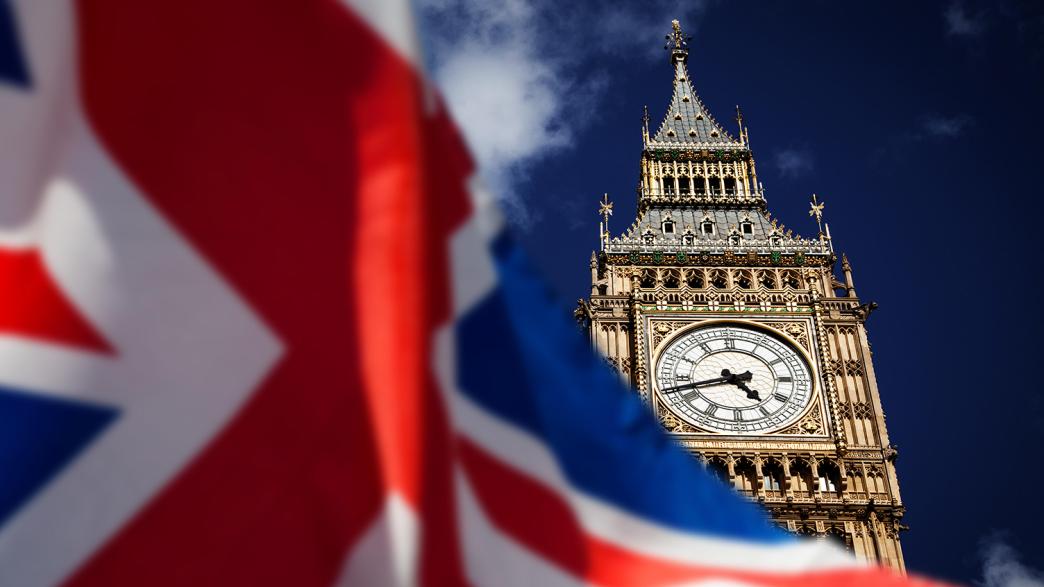
September also saw Liz Truss give a keynote speech on the economy at the IfG, with the former prime minister’s appearance – our most-watched event of the year – giving the IfG a chance to challenge her approach to government – such as use of evidence, engaging with institutions, and speed of policy making – which we had been deeply critical of at the time.
Westminster decamped for party conference season, with the IfG team heading on the road to attend a record-breaking number of fringe events at the Labour, Conservative, SNP and Lib Dem conferences. Ministers and shadow ministers were among the many speakers who spoke on a huge range of subjects at our panel events.
We launched our general election work programme in November, with an event featuring Peter Mandelson and David Willetts discussing what change the country needs and wants. We also published an explainer – our most-read of the year – which set out the possible dates for the general election and the reasons for and against.
The government’s controversial Rwanda asylum plan dominated the end of the year at Westminster, and looks to set to be the major parliamentary battle ground of the new year. A series of IfG papers, including by Jonathan Jones, the former head of the government legal department, explored how the government’s new immigration plan might work and examined its legal and constitutional implications.
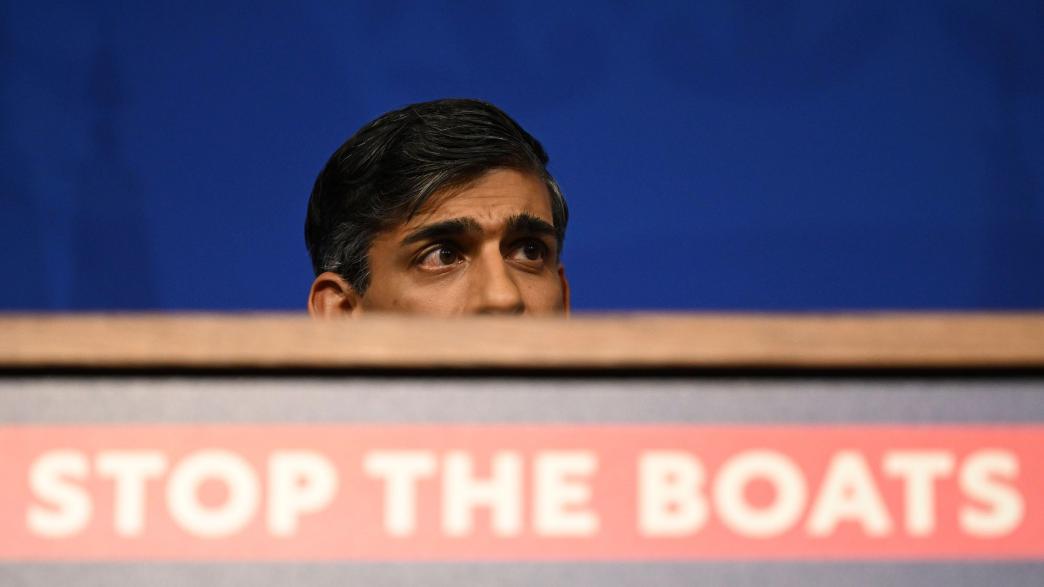
We will begin next year with a review of how much progress Rishi Sunak has made on those five pledges, an event on what oppositions need to do to prepare for power, and then, of course, our Government 2024. It has been a fascinating 12 months in British politics. The next 12 could be even more eventful.
Government 2024: IfG's annual conference
The IfG will bring together influential speakers and experts to explore the key questions for government in 2024.
Register to attend online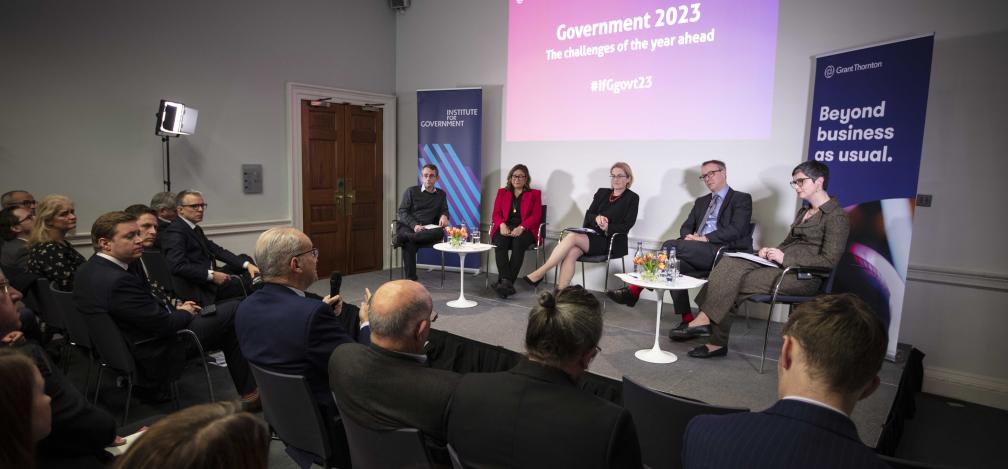
- Topic
- Parliament and the constitution Policy making Public finances Civil service Public services Ministers
- Keywords
- General election NHS Health Immigration Civil servants Civil service reform Constitutional reform Economy Party conferences Public sector Public spending Budget
- Political party
- Conservative Labour
- Administration
- Sunak government
- Department
- Number 10 HM Treasury Home Office
- Legislature
- House of Commons
- Public figures
- Rishi Sunak Keir Starmer
- Publisher
- Institute for Government